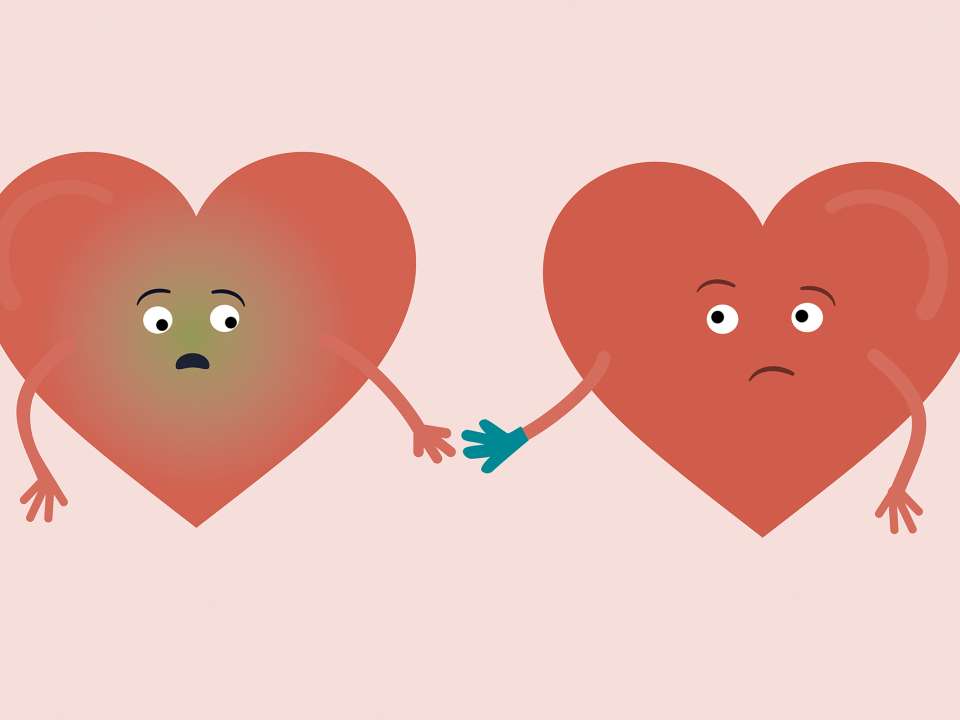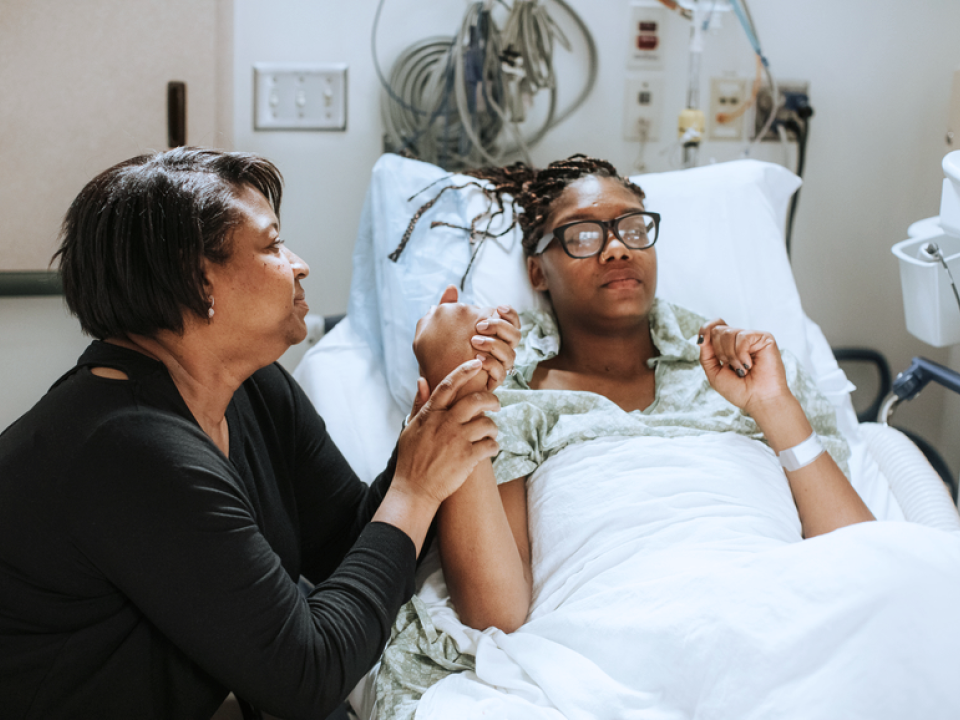
We get it. Talking about issues related to the rectum and colon are, well, kind of awkward. Unfortunately, the discomfort and shame that comes with talking about those parts of the body may keep some people from bringing up potentially crucial information to their doctor.
Keeping silent isn’t good, especially if you’re having new symptoms. While colorectal cancer remains rare among young people, about 18,000 Americans under the age of 50 are diagnosed with the disease each year. Oftentimes, early symptoms are mild, but they shouldn’t be ignored. Here’s what you need to know.
What is colorectal cancer?
Colorectal cancer starts when cells in the colon and rectum begin to grow out of control. This year, more than 150,000 Americans will be diagnosed with colorectal cancer. Typically, colorectal cancer affects people over the age of 50, but the number of people under the age of 50 who are getting diagnosed is increasing.
“There are a number of theories as to why cases in people under 50 are increasing,” says Dr. Mukta Krane, section chief of colorectal surgery at UW Medicine – Montlake. “Environmental exposure, microbiomes and changes in diet could all be reasons for the increase, but we don’t know enough yet. For now, the recommended age to be screened for colorectal cancer has been dropped to 45.”
For people without risk factors, such as a family history of colorectal cancer, after getting screened at age 45, routine screenings should occur at least every 10 years until at least age 75. Based on the colonoscopy results, it may be recommended that you get screened at shorter intervals.
No one loves adding another preventive screening to their list of adult to-dos, we know. But screening increases the chances that cancer can be detected early, when it’s easier to treat and cure.
What are the symptoms of colorectal cancer?
Let’s say you aren’t due for a screening, but you’re starting to notice some consistent changes when you poo. If the symptoms are persistent, don’t just blame it on a bad lunch or an upset stomach — keep track of these symptoms to report back to your doctor.
“The most common symptoms that we see are changes in the frequency or the quality of someone’s bowel movements, such as a narrowing of the caliber, increased urgency, or rectal bleeding,” says Krane. “Some people might present with symptoms of anemia or significant weight loss, too.”
Krane urges that anytime you’re experiencing these symptoms, you should be evaluated by a doctor, and a colonoscopy may be in your future.
What’s a colonoscopy?
Here are the basics: A colonoscopy is an examination of your rectum and colon. It's done with a long, flexible tube with a camera at the end called a colonoscope. The camera at the end of the colonoscope allows your doctor to check for cancers and small growths called polyps, which can develop into cancers. If any abnormalities such as polyps are found, your doctor will try to remove them during the colonoscopy if possible. If not, they can take a sample of the tissue to perform a biopsy to make sure it’s nothing dangerous. You’ll be sedated during the colonoscopy, so most people are pretty comfortable during the actual exam. But the at-home prep work before the colonoscopy might be a bit of a different story.
The colonoscopy complaints you’ve probably heard from a friend or family member are valid — not many people enjoy drinking a gallon of odd-tasting liquid and spending a lot of time in the bathroom.
“The first thing someone should do is talk to their provider to understand what the true experience of a colonoscopy should be,” says Krane.
What happens if cancer is detected?
If the cancer is detected at a very early stage, the doctor can remove it at the time of the colonoscopy.
“That’s why colonoscopy screenings are important, even if you’re under 50 and without symptoms,” says Krane. “When there are symptoms present, it typically requires more intense treatment like surgery or chemotherapy.”
Krane adds that if someone is diagnosed with colorectal cancer and surgery is recommended, they’ll typically have the surgery within three to four weeks of diagnosis. If radiation or chemotherapy is recommended, the length of treatment can typically be around six to nine months.
What conditions could mimic symptoms of colorectal cancer?
If you’re experiencing symptoms but don’t have colorectal cancer, it’s quite possible you have another condition that could affect the bowels.
“There are a number of conditions that could mimic colorectal cancer, such as diverticulitis, Crohn's disease, ulcerative colitis and others,” Krane says.
It’s important to know what your typical bowel habits are, but also not be too worried if something feels off. Don’t just attribute the symptoms to a benign condition — get checked by your doctor to be sure.
Why prevention is key
One of the only things that significantly decreases the risk of developing one of the most common cancers in the country is having routine colonoscopies. Which means, yes, you have to talk about those awkward parts of your body.
Whether you’re an elder millennial approaching your 40s, or you’re Gen X and haven’t had your routine exams, it’s extremely important to start thinking about or talk to your doctor about having a colonoscopy if it’s time — yes, even if you’re uncomfortable discussing your gut or drinking a gallon of disgusting liquid.
“A lot of my patients who had cancer said they wish they got their colonoscopy years before they did,” says Krane “People should know that colonoscopies are low risk, outpatient procedures. If I knew it would catch the cancer that could kill me — I’d do it in a heartbeat.”

 Healthy ideas for your inbox
Healthy ideas for your inbox





